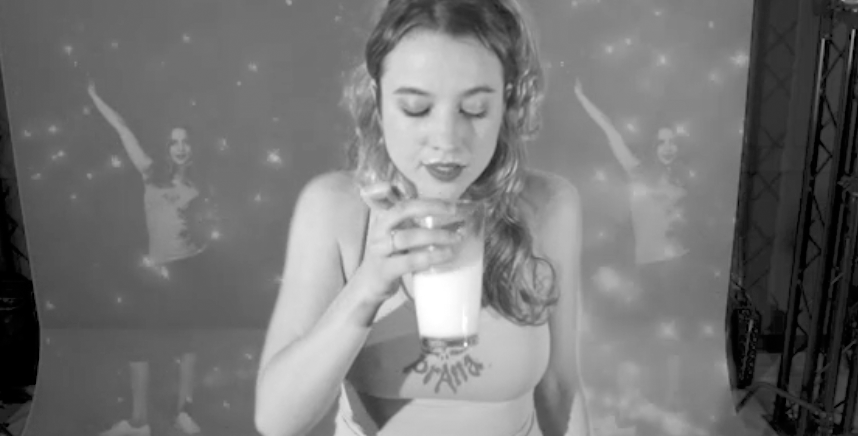
Yale Cabaret
“Brothers Convince Little Sister of Zombie Apocalypse”; “Channing Tatum and Jenna Dewan-Tatum’s lip-sync battle”; “Pen-Pineapple-Apple-Pen.” If you knew these three videos were some of the highest trending on YouTube in 2016, are you bobbing your head goofily in guilt or shaking it in cold apprehension for the future of humanity?
A modern interpretation of “The Crucible,” “This Sweet Affliction” by Blake Hackler, runs at the Yale Cab Nov. 9 to 11 directed by Madeleine Boudreaux. The play is loosely based on the story of a Tourette’s cluster of teenaged girls in Le Roy, New York, in 2012, and for all Dear-Evan-Hansen-ians, preoccupies itself with similar questions: What happens when a lie gets out of control? What happens when that lie is about mental or neurological illness and gets out via the epidemic vector of social media?
Protagonist Anna, a vain theater geek and conventionally uncool high schooler neglected at home by a single parent, fakes tics on YouTube videos and is joined by tens of other attention-starved teenaged girls, culminating in a video-streamed mass suicide attempt. In many ways we know the story already, but “This Sweet Affliction” knows we know the story, and supplements it with provocative production choices and fun meta-theatrical bits to chew on.
Just when I thought a few especially contrived tensions would have contrived resolutions, the production zapped me with a charged, grotesque “realness” I thought was really powerful. The cheer squad performs a hypersexualized transition routine, Anna’s mom slaps her, Anna spits on popular cheerleader Megan Howard and Megan leans in and says dead cold: “That’s fucking assault.” This is not the “High School Musical” universe.
Anna narrates “This Sweet Affliction” and regularly loses control of the play, expressing her frustration to the audience when the show seems to move on or develop in a way she doesn’t want it to. These pokes in the fourth wall finally crumble the dyke in the last scene, when Bailey, Anna’s childhood friend with an inside scoop on her melodramatic tendencies, confronts her about tic faking. As Bailey pleads Anna to “stop acting,” Anna faces the audience and narrates an ending to her story that’s uncomfortably different from what Bailey interjects. Then, amidst Bailey’s pleas of “stop acting” and “who’s watching,” Anna spookily exits through the cabaret, telling unsuspecting audience members transfixed by her wide, dark eyes that she’s “a good actress.”
Hot damn! I was thinking about this creepy scene on my 12:40-a.m. walk from the Cab dress rehearsal in sub-freezing conditions Wednesday night, and I decided that the audience isn’t forced to become involuntarily complicit in Anna’s performance but is reminded that it IS voluntarily complicit. Viral videos become viral because we click on the little red button to watch them. What responsibility, if any, do we have for the image-obsessed internet and media spheres?
As a representative teenaged girl, I don’t like attention-starved teenaged girl criticisms. I think it’s easy to reduce my demographic to crippling insecurity issues, emotional instability and egomania, and I was kind of hoping a reinterpretation of “The Crucible” would put the destructive onus on someone else or at least make the antagonistic girl gang more complex. Adult men lie too, and queen bee Megan Howard and company jump on the fake tics bandwagon with upsettingly little hesitation.
As a representative millennial (A young millennial? I remember The Lizzie McGuire Show but not Rugrats), I’m also skeptical of cheap shots against internet culture, but I think the play does a good job of focusing more on the people and less on the technology.
“This Sweet Affliction” is a fresh “Crucible” refraction spiced up with trippy metadrama. Beyond the specific issues of the internet, I fast-walked through the 17 billion gates of Pierson College Wednesday night thinking about attention and audience: Who do we live our lives performing for, and why?
Emily Schussheim | emily.schussheim@yale.edu .







